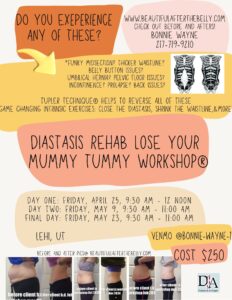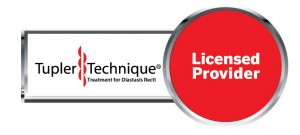After reading The China Study
I thought it would be interesting to note OTHER nutrition books that are worth reading and have a discussion. I would LOVE to hear your comments and suggestions on this one. And since I am going to give my opinion on some of the books, I will probably ruffle some feathers. People tend to be VERY passionate about their favorite nutrition books.
So to start off – THE CHINA STUDY. I found it for the MOST part, very interesting with lots of studies to back up the claims about animal protein, and milk protein being absolutely horrible for the human body, especially when its above 5% of the human diet. HOWEVER, as I have mentioned before, it does not take into account other indigenous populations, like the Eskimos, who ingest 70-80% of their diet on whale blubber and have some of the lowest incidences of high BP and heart disease on earth. APART from that, there are quite a few BLANKET statements meant to fluff up the argument that meat is horrible, and that you can get MOST everything you need from fruits and veggies. He DOES talk about how the soil is depleted, so that makes the above statement much more impossible. He totally DOGS supplements, but a couple chapters later, talks about how NOT eating meat will deplete your B12 stores and that you will need to supplement that. He also does not address ANYTHING else but meat and makes meat the SOLE bad guy. HELLOO-SUGAR should be address a little more than a page or two. From other sources I have read, that is one of the HUGE fall guys for disease, obesity, blood pressure, bacterial infections, etc. Its not ALL about meat! He starts to bring out the benefits of Omega 3s in one of the studies, and then pooh poohed it all in the name of – “The not eating meat must have been what was beneficial” – and not taking into consideration that it could have been BOTH – just BLANKET STATEMENT galore.
PEARL OF WISDOM: I tend to eat less meat than I did. I am MUCH more scared of casein, the milk protein, because of it causing 100% incidence of cancer in the rates at 20% and above of the diet. I eat MORE fruits and veggies than I did, if that even possible. AND I try to embrace oats and quinoa more than I did before. But most of all, it solidified for me to eat all things in moderation. AND, it freaked me out about eating store bought peanut butter – I am more motivated to make my own know about the alflatoxin carcinogen found in the nasty nuts used to make peanut butter.
I have mentioned it before, but What Color Is Your Diet? is fantastic. It talks about how you don’t just need “fruits and veggies” but encourages to be aware that they are separated into catagories depending on the pigment. The pigment of the fruits and veggies determines the antioxidants and benefits. On a side note, its my personal peeve when people cut off the peels of their apples and other things, because THAT is the super concentration of the pigment that GIVES most of the antioxidants. This book is in cancer centers across the US because of its strategy of decreasing cancer through diet.
The Omega-3 Connection: The Groundbreaking Antidepression Diet and Brain Programis also fantastic to show how important Omega 3s are to humans. Our ancestors had a 2:1 ratio of foods that gave omega 3’s. Today it is estimated that we get between 20:1 to a 50:1 ratio of omega 3s because of all the processed junk, lack of veggies, and lack of sea food in our diets. To replenish the ratio our DNA was programmed with helps a full gamut of issues.
The Omega Rx Zone: The Miracle of the New High-Dose Fish Oil is another one, this one by Barry Sears, that shows how Olympic athletes he worked with increased their performance by restoring the ratio of omega 3s our DNA is accustomed to, along with addressing fertility issues by restoring omega 3 composition, and ADD, menstrual, and hormonal issues. I personally know someone whose menopause was reversed by Omega 3s (she was 28 and was getting VERY early menopause, and was told she would never have kids. She got on a PHARMACEUTICAL GRADE high quality Omega 3 and now has 2 young kids – she is in her upper 30s. Since I know her personally and her struggles, her story always stands out to me.

is a very fascinating book about food’s effect on children. It makes you think twice about what you feed them, and how it effects behavior, learning, – all things that are brain related. I don’t look at it as a “guilt-inducer” but rather a way to make INFORMED decisions on what to feed your kids.
Say Good-Bye to Illness (3rd Edition)
So this one is more of alternative view of health book, but it literally has changed the way I view health. My kids have both utilized NAET with their health (through a medical practitioner) and it had changed their health so dramatically. So I have to give it props.
Some books I would LIKE TO READ NEXT:
Animal, Vegetable, Miracle: A Year of Food Life (P.S.)
I heard about this one from my friend Mary. Here is what she said about it:
The next one on my list is Protein Power: The High-Protein/Low-Carbohydrate Way to Lose Weight, Feel Fit, and Boost Your Health–in Just Weeks! I have been meaning to read this one for awhile – actually about 5 years. However, after reading The China Study, I think I will go into reading it much more critically. This particular book has been recommended to me by nutritional experts and doctors. So, we’ll see.
BUT MOST OF ALL – I would love to hear from YOU!!! What books have you read that have changed the way you view food, or think of food???????????? I would LOVE to hear!!!



Hi there!
Very interesting post and I will have to check out some of the books you mentioned that I haven’t read.
I happen to be a believer in the China Study, but I agree it is not a perfect book. I also agree that sugar is a definite bad guy but that would take a whole other book, so can see why Campbell didn’t go that route in this book. It wasn’t the purpose of his study.
As far as not being able to get everything we need from fruits and veggies…that’s why we also have nuts, grains, beans, etc. No, the nutrients aren’t as dense as they used to be, but that is true of all foods: meat, dairy, and eggs included. Therefore, while I’m not going to insist that everyone be vegan, that is the path I have chosen for my family (after being ovo-lacto vegetarian for 20 years). I think that we should eat in moderation, without going overboard with any one food, and try to stick to the least processed, least chemically/hormonally treated foods available. It’s great that public awareness is being raised in regards to quality of food.
Other books that are interesting reads…one of them is from a nutrition class I took in college, so is a bit dated (not that I’m old-ha!) but most everything is still sound: “Proof Positive” by Neil Nedley. Also, I’ve only read bits and pieces of “Excitotoxins” by Russell Blaylock, but it is very eye-opening so I need to read it more thoroughly. It has led me to be aware of all the additives such as MSG and how they literally excite our brain cells to the point of death. Scary stuff!
As far as supplements go, I’m not a fan of vitamins as I don’t think they are readily absorbed by our bodies since we were created to absorb our nutrients from food. (See “The Vitamin Myth” article in Reader’s Digest for starters). I do take a supplement called Juice Plus which is whole food based nutrition (dehydrated fruits, veggies and grains in capsule or chewable form). I know that high quality food isn’t always available and as hard as I try, I probably don’t always get all I need from the food I eat, so try to fill in the gaps if I can.
Sorry for the novel. I really do appreciate your take on nutrition. Always good to get someone else’s perspective.
Great blog too! Very inspiring!!! Keep up the good work.